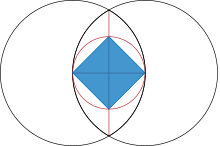
- Blogs (Apr 09, 2020)
- News (May 30, 2023)
- Organizations (Nov 04, 2023)
- People (Nov 03, 2023)
- Projects (Jun 24, 2019)
You can log-in or register for a user account here.

the idea that technology (codes) and techniques (modes),
affect human perception, understanding, feeling, and value;
and how our interaction with media facilitates
or impedes our chances of survival."
- Integration of definitions by various Media Ecologists

* + ***
"the postindustrial and the postmodern,
& the preliterate and prehistoric."
- Lance Strate, Professor, Communication & Media Studies,
& Co-Founder, Media Ecology Association, Fordham University.
"the medium (figure) operates through its context (ground)"

**
Enhancement (figure) :
What does the (new) medium improve or enhance,
amplify or accelerate?
Obsolescence (ground) :
What is driven out of prominence, obsolesced,
pushed aside by the (new) medium?
Retrieval (figure) :
What earlier action or service is brought back into play
or recovered by the (new) medium? What older, previously lost ground
is brought back and becomes an essential part of the (new) medium?
Reversal (ground) :
When pushed to its limits or extremes, of its potential,
the (new) medium will reverse what was its original
characteristics. What is the potential reversal of the new form?

****
* Image: "Media Tetrad" under GNU Free Documentation License, Version 1.2
** Image: "The Resonating Interval: Exploring the Process of the Tetrad"
by Anthony Hempell, Communication 453, Simon Fraser University
American Society for Information Science and Technology
"Parts of this web site may be reproduced freely if not for profit ©"
*** Video: "A Vision of Students Today" by Michael Wesch
Digital Ethnography, Mediated Cultures, Kansas State University
2007 Creative Commons Attribution-Noncommercial-Share Alike 3.0 Unported License.
**** Image: "Tetrad" is Public Domain. Recycle
| The Tetra-Questions : Metta-Quadrents | Log-in or register a new user account | 0 Comments | |
|
| |
| Comments are statements made by the person that posted them. They do not necessarily represent the opinions of the site editor. |
- Apache HTTP Server
- Audacity [audio]
- Blender [3D suite]
- EMS Resources
- Firefox [browser]
- FreeCAD [modeler]
- GIMP.org [graphics]
- Inkscape [vector]
- LibreOffice
- Linux Kernel
- Mattermost [team]
- MediaWiki
- Moodle [LMS]
- Mozilla Hubs
- NetNewsWire
- Nightingale [music]
- OBS Studio
- QGIS [Geo-Info-Sys]
- Thunderbird [email]
- Thunderbird Lightning
- VLC [VideoLan]
- Wordpress [CMS]
- xiph Vorbis [ogg]
- XMPP [comm]
INTERNET ARCHIVE
WIKIMEDIA FOUNDATION
OPEN COURSEWARE
- Archive Educational
- Commons
- EdX
- Encyclopedia of Life
- HarvardX
- Harvard U
- CancerCommons
- Identity Mashup
- Merlot
- MIT OpenCourseware
- MITX
- Neuropathy Commons
- Northwestern U
- OpenCulture
- Open Edu Global
- Open Journal Systems
- OpenStax at Rice
- Open U OER
- Oregon State U
- SchoolForge
- Stanford U
- Tree of Life (glossary)
- U of Michigan
- U of Oxford
- Wikiversity
- Yale Open Courses
• Deep Learning
• Machine Learning
• Reinforcement Learning
• Artificial Intelligence
OPEN FORGES
OPEN METAVERSE
• Blender [3D Suite]
• Firestorm Viewer
• GitHub
• Libre3D
• Metaverse Project
• Mozilla Hubs
• NIH 3D Print Exchange
• OpenKinect
• OpenNI2
• OpenSim
• OpenSourceVR
• OpenWonderland
• PlayCanvas
• Sirikata
• Sketchfab
• Thingiverse
• 3D Warehouse
• Unity 3D
• WebGL (Moz)
• WebXR API (Moz)
• Yeggi
• YouMagine
- Arxiv at Cornell
- Arxiv Computer Research
- Arxiv Mathematics
- Arxiv NonLinear Sciences
- Arxiv Physics
- Arxiv Quantitative Biology
- Berkeley Electronic Press
- Free Legal Resources
- MediArXiv
- Public Library of Science (PLoS)
- PLoS ONE
- PLoS Biology
- PLoS Complex Systems
- PLoS CompBio
- PLoS Genetics
- PLoS Medicine
- Science Commons
- Smithsonian
- Alternative Freedom
- Brothers Chudnovsky
- Century of Self
- Conundrum
- Design-e2
- Digital Nation
- Einstein's Big Idea
- The Elegant Universe
- Evolution
- The Facebook Dilemma
- Fritjof Capra
- Generation Like
- The Grey Video
- Growing Up Online
- How Art Made the World
- In the Age of AI
- Last Child in the Woods?
- Life Incorporated
- Merchants of Cool
- Mirror Neurons
- OurMedia
- OS Media
- The Persuaders
- Plastic Wars
- Present Shock
- RecentChangesCamp06
- Revolution OS
- Who Owns Culture?
- Definition
- MP3 7.2MB
- More A/V
- Stanford Talk
Games- Agility
- Drawing
- OS Games
- Spelling
Media Ecology- Definition
- Tetrad of Effects
Optics- Dymaxion Map
- Hubble Telescope
- James Web Telescope
- Map - Territory
- Op Art
- Virtual Globe
- Visible Earth
Systems Science- 67th Proceedings
- 66th Proceedings
- 65th Proceedings
- 64th Proceedings
- 63rd Proceedings
- 62nd Proceedings
- 61st Proceedings
- 60th Proceedings
- 59th Proceedings
- 58th Proceedings
- 57th Proceedings
- 56th Proceedings
- 55th Proceedings
- 54th Proceedings
- 53rd Proceedings
- 52nd Proceedings
- 51st Proceedings
- 50th Proceedings
- Retrospective 12
- Retrospective 11
- Retrospective 10
- Retrospective 09
- Retrospective 08
- Retrospective 07
- Retrospective 06







